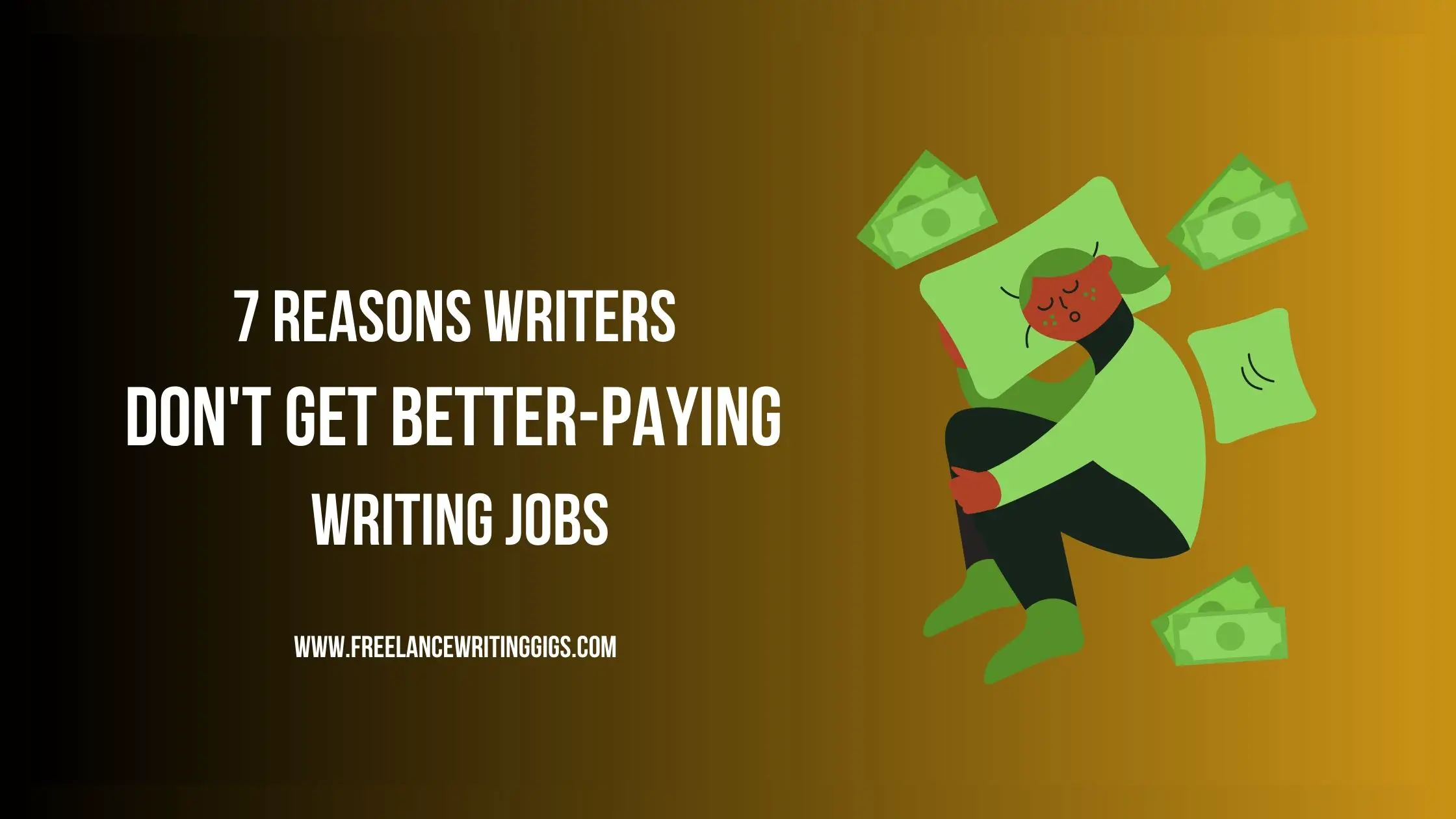Today, I’m going to cover a slightly sensitive topic. Today’s topic deals with mistakes that writers make that can keep them from being selected for better-paying gigs.
Seven Mistakes That Can Affect Whether You’re Hired
There are times when you aren’t selected for a writing project, and it isn’t your fault. There’s a lot of competition out there, and not everyone can be chosen all the time.
However, there are other times when you aren’t chosen for a better-paying writing job because you could have handled something better. It’s not an easy pill to swallow, but we need to face the reality. Sometimes, you just need to be better!
Here are seven mistakes that freelance writers make that can affect whether you’re hired or not:
1. Not managing your online brand
Some writers don’t realize that everything that they post or publish online becomes part of their online brand. You should take it for granted that potential clients will do a search on your name (whether you want them to, or not). If most of what comes up in that search is poorly written or unprofessional (including social media), many will assume that this is representative of all your work.
So, the next time you’re ready to get that tweet out, give it another look and make sure you’re on-brand.
2. Not networking with potential clients
It’s great to be involved in social media. Interaction with peers online can be a great way to learn and share. For social media to pay off in terms of getting gigs, your contacts should also include current and potential clients. Take a look at who you’ve friended and followed online. Does the list include anyone who could give you work?
Social media has given us an opportunity to connect with potential clients like never before. We don’t even have to physically present! 🎉
So take advantage of this medium and network your heart away.

3. Not having an online presence at all
There are still a few freelance writers who don’t have an online presence. While it is still possible to find freelance writing work without a blog or online portfolio, not having either does make it harder for clients to find you. Also, not being online could cause a potential client to assume that you don’t have the current experience or updated skills that are needed to do the job.
4. Not projecting yourself as a professional
Every contact that you have with a prospective client, from the time that they first run across your name right up to the time that you finish a project for them, needs to be courteous and professional. Anything less, and the client is likely to find someone else (who does project a professional image) to work with.
Here are five key ways to project professionalism in your interactions with prospective clients:
- Be prompt and responsive, valuing their time and delivering excellent service.
- Use polite and clear communication, ensuring respectful and professional language.
- Personalize your communication, addressing clients by name and tailoring responses to their needs.
- Stay knowledgeable and well-informed, sharing insights and demonstrating expertise.
- Set clear expectations, outlining scope, timelines, and terms to avoid misunderstandings.
Read this guide to master the art of client communication.
5. Not following through
Follow-up is a weak point for many writers. You should be checking in regularly with former clients, with companies who have expressed an interest in your services (but have not yet hired you), and with those you meet who might eventually need a freelance writer. It’s not unusual for a writer to work for a client once and never check back with them to see if they have more work.
Not convinced? Read this true story of how a freelance writer landed a client worth $450+ per article because of a follow-up email!
Need tips? Here’s how you can follow up effectively on clients.
6. Not being patient
Marketing a freelance writing business is a lot of work. It can take a lot of contact with a potential client over a long period of time before you are given the chance to work on a project with them. It’s somewhat rare for a freelance writer’s job-hunting efforts to achieve instantaneous success, yet that’s what many of us expect. When it doesn’t happen, we get frustrated.
🔑 Patience is key. (But follow up!)

7. Not even applying
You’ll never win if you don’t play, right? Surprisingly, the reason many freelance writers don’t get a better-paying gig is that they don’t apply when one comes up. When we notice a high-paying freelance writing project, some of us tend to talk ourselves out of applying for it. But, the truth is that you won’t be selected for a job if you aren’t even in the running for it.
Feedback Time
I’ve shared seven mistakes that keep freelance writers from getting better-paying gigs, can you think of more?
Related Articles:
👍🏾 How to earn more money as a freelance writer
👍🏾 Higher paying writing fields
👍🏾 Types of companies that need freelance writers
This post was originally published in April 2010 and updated May 2024.


Leave a Reply